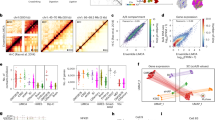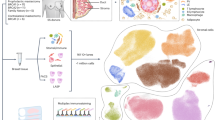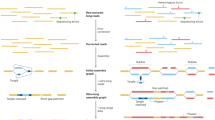Abstract
DATA from somatic cell hybridisation have made important contributions to the understanding of genetic control of pheno-typic expression, the nature of malignancy in tumours, gene mapping and the basic genetic lesions causing metabolic diseases1–5. Broader application has been limited by the absence of biochemical markers in most cell strains and lines, making it difficult to eliminate parental cells and isolate hybrids. Recent non-selective methods of isolating hybrid cells require either expensive and elaborate equipment6 or examination of large numbers of clones with a low yield of hybrids7. We now present a method for isolating tetraploid clones from fused human fibroblasts non-selectively and in high yield. Our technique is applicable to tetraploid cells formed from any pair of diploid cells as long as the synkaryons so formed can proliferate. The method depends on the separation of fused cells from the unfused parental cells because of their greater size. A mixture of cells settles out according to size in a shallow bovine serum albumin (BSA) gradient at unit gravity, yielding fractions enriched in double-nucleated cells from which tetraploid clones can be isolated in high yield.
This is a preview of subscription content, access via your institution
Access options
Subscribe to this journal
Receive 51 print issues and online access
$199.00 per year
only $3.90 per issue
Buy this article
- Purchase on Springer Link
- Instant access to full article PDF
Prices may be subject to local taxes which are calculated during checkout
Similar content being viewed by others
References
Harris, H. Cell Fusion (Clarendon, Oxford, 1970).
Ephrussi, B. Hybridization of Somatic Cells (Princeton University, Princeton, 1972).
Gordon, S. J. Cell Biol. 67, 257–280 (1975).
Bernhard, H. P. Int. Rev. Cyt. 47, 289–325 (1976).
Ringertz, N. R. & Savage, R. E. Cell Hybrids (Academic, New York, 1976).
Horan, P. K. & Wheeless, Jr, L. L. Science 198, 149–157 (1977).
Hoehn, H., Bryant, E. M., Johnston, P., Norwood, T. H. & Martin, G. M., Nature 258, 608–610 (1975).
Miller, R. G. & Phillips, R. A. J. cell. Physiol. 73, 191–202 (1969).
Paul, J. in Cell and Tissue Culture 5th edn, 221 (Churchill Livingstone, New York, 1975).
Davidson, R. L., O'Malley, K. A. & Wheeler, T. B. Somatic Cell Genet. 2, 271–280 (1976).
Diacumakos, E. G. Proc. natn. Acad. Sci. U.S.A. 70, 3382–3386 (1973).
Lin, C. C. & Uchida, I. A. in Tissue Culture (eds Kruse, Jr, P. F. & Patterson, Jr, M. K.) 778 (Academic, New York, 1973).
Khan, P. M. Archs Biochem. Biophys. 145, 470–483 (1971).
Harris, H. & Hopkinson, D. A. Handbook of Enzyme Electrophoresis in Human Genetics (North-Holland, Amsterdam, 1977).
Author information
Authors and Affiliations
Rights and permissions
About this article
Cite this article
CHANG, P., JOUBERT, G. & DAVIDSON, R. Non-selective isolation of human somatic cell hybrids by unit-gravity sedimentation. Nature 278, 168–170 (1979). https://doi.org/10.1038/278168a0
Received:
Accepted:
Published:
Issue Date:
DOI: https://doi.org/10.1038/278168a0
This article is cited by
-
Complementation studies with clinical and biochemical characterizations of a new variant of multiple sulphatase deficiency
Journal of Inherited Metabolic Disease (1987)
-
Somatic cell hybridization studies on the genetic regulation and allelic mutations in metachromatic leukodystrophy
Human Genetics (1982)
-
Complementation of genetic disease: A velocity sedimentation procedure for the enrichment of heterokaryons
Somatic Cell Genetics (1979)
-
Enrichment of human heterokaryons by ficoll gradient for complementation analysis of iduronate sulfatase deficiency
Somatic Cell Genetics (1979)
Comments
By submitting a comment you agree to abide by our Terms and Community Guidelines. If you find something abusive or that does not comply with our terms or guidelines please flag it as inappropriate.



